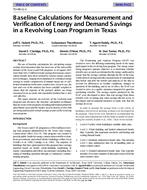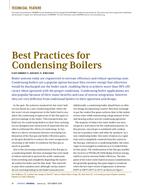Click here to purchase
This paper describes the development of a building technology system for a residential building complex built in 1985 in the city of Salzburg, Austria. The settlement consists of 75 apartments and is in great need of renovation. In the context of this survey, an extensive refurbishment and densification is conducted. Due to high costs caused by the construction and maintenance of a ventilation system, it is state of the art in Austria to install a simple exhaust ventilation system without implementing a heat recovery system. One of the main goals is targeting CO2 reduction by developing a system which combines the benefits of an exhaust ventilation system without heat recovery and a monitored mechanical ventilation system including a central heat recovery system. The required ventilation for each room is provided by overflow openings in the façade, with its benefits to avoid air filter change in comparison to a ventilation system. The novelty is obtained by the exhaust air heat recovery system via an air to brine heat exchanger in combination with a drain water heat recovery system as a heat sources for the conducted heat pumps. The renovation concept is a holistic approach combining the fields of energy, mobility, social structure and the economics of social housing. A monitoring system, which is implemented during the construction phase, is gathering measurement data concerning the performance of the refurbished buildings and should provide information of possible factors to increase efficiency of the system. The developed refurbishment concept will be documented and transferred for an implementation into other residential complexes which are in need of renovation. Performance of the building and its combination with different heating and ventilation systems will be evaluated within the simulation environment IDA ICE Version 4.8, in order to identify possible benefits of the innovative heating system including an exhaust heat recovery system and a drain water heat recovery system. As a result of the simulation, a comprehensive comparison between the systems in terms of CO2 emissions and energy efficiency is conducted.
Citation: 2020 Winter Conference, Orlando, FL Conference Papers
Product Details
- Published:
- 2020
- Number of Pages:
- 7
- Units of Measure:
- Dual
- File Size:
- 1 file , 1.2 MB
- Product Code(s):
- D-OR-20-C022


